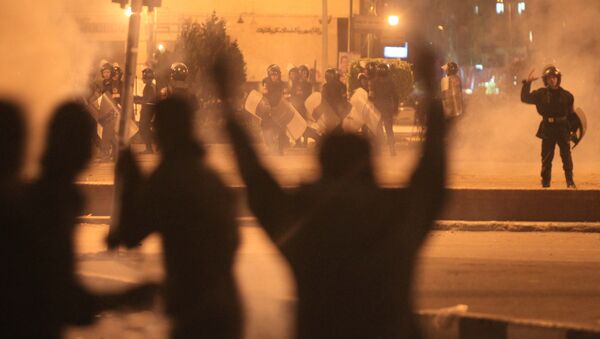Monday marks the fifth anniversary of the start of an uprising that ousted Egypt's longtime autocrat Hosni Mubarak.
Young Egyptians spearheading the uprising had been encouraged by a revolution a month earlier in nearby Tunisia, Ghada Talhami, a professor at Lake Forest College, in Illinois, said in an interview with Sputnik Radio's "Loud & Clear."
"Everybody assumed that the Mubarak regime was there to stay forever," she said. "And all of a sudden, young people were really empowered – or they felt they were empowered by numbers and by their availability for action."
But rather than creating freedom and democracy, Talhami said, the Arab Spring has had "disastrous" consequences in Egypt and beyond, saying the Arab world made the mistake of favoring stability over democracy.
The Arab Spring, she said, was an "open invitation to destabilization."
Ali al-Ahmed, director of the Institute of Gulf Affairs, claimed that many Arab people had for decades been suppressed by despotic governments. The uprisings in Tunisia in 2010 inspired Arabs throughout the region to recapture their dignity, he said.
According to Ahmed, the major obstacle to realizing the goals of the Arab Spring was outside groups that stepped in after the revolutions began, providing financing and other support to ensure that "the results of the Arab Spring served their own end."
The desires of the young activists who led the Arab Spring cannot be realized by governments currently in place throughout the Arab world, he said.
Sukant Chandan, director of the Malcolm X Movement, said the Arab Spring was the biggest "catastrophe" to impact Arab people in half a century or longer – one that has been followed by "disaster upon disaster."
The destruction of Libya, he noted, would not have occurred without the uprisings in Tunisia and Egypt, the latter of which is now fighting Daesh extremists.



